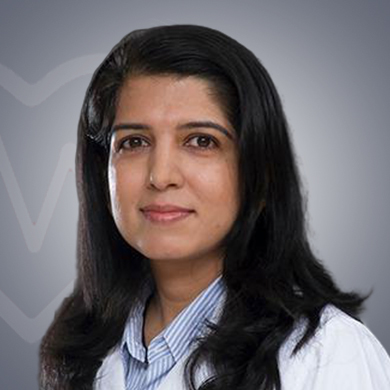
15 Years of experience
Speaks: English
Dr Nisha Ramdas Chandnani has treated a wide variety of conditions with high success rate and accuracy. Some of the conditions treated by the doctor are:
Diabetic Retinopathy, Dry eye Syndrome, and Conjunctivitis are common eye conditions treated by ophthalmologists. The treatment for dry eye is based on the suggestion of an ophthalmologist Treatment options may include proper dieting, medications, and surgery. Some treatments for drye eyes focus on reversing a condition that's causing your dry eyes.
You must see an opthalmologist if you have any of the below-listed symptoms:
Routine eye exams are the best way to avoid any vision problems. In case you did not have an eye exam for more than a year, you should schedule a visit with your eye doctor. Being aware of some warning signs can help you take the required steps for the health of your eyesight, especially if the vision symptoms appear suddenly. In most cases, detached retina and onset of glaucoma, quick intervention is required to minimize the permanent vision loss.
You can reach Dr Nisha Ramdas Chandnani from 10 am to 5 pm on Monday to Saturday. The average working hours of the doctor are 47 hours a week.
Dr Nisha Ramdas Chandnani is an experienced opthalmologist who performs a number of popular procedures mentioned below:
LASIK or laser-assisted in situ keratomileusis is a common eye procedure performed when a person wants better vision and does not want to wear contact lenses and glasses. LASIK is the most common type of eye surgery that fixes issues with the way the eyes focus. The procedure is performed using a laser to remove tissues.

Share Your Experience about Dr. Nisha Ramdas Chandnani

An ophthalmologist is a medical doctor who is trained in vision and eye care. Ophthalmologists are different from optometrists and opticians because of their different levels of training and the conditions they diagnose and treat. Some ophthalmologists work closely with other medical experts to provide care for chronic eye conditions. An ophthalmologist also diagnoses as well as treats eye conditions, does eye surgeries, and participates in scientific research on the causes and treatment for eye diseases and vision issues. Sometimes, ophthalmologists also detect health issues that are not related to the eyes but become clear in a routine eye exam. The ophthalmologist recommends that the person should consult their doctor.
For the evaluation of your eye condition, you have to get certain tests done which may include the following:
Eye exams are critical because severe eye diseases such as glaucoma, cataracts, macular degeneration, or diabetic retinopathy may have minimal symptoms until the condition has progressed. An eye exam involves a number of tests to check your vision and eye diseases. An opthalmologist will perform a series of tests to find out the eye problem and will recommend a treatment plan.
In the below-listed situations, you must seek assistance from an opthalmologist:
The above signs and symptoms should not be ignored and must be discussed with an eye specialist because the diagnosis of eye condition at an early stage will help the doctor to plan effective treatment, They may also discuss your symptoms with other doctors to determine the right treatment.